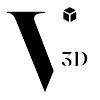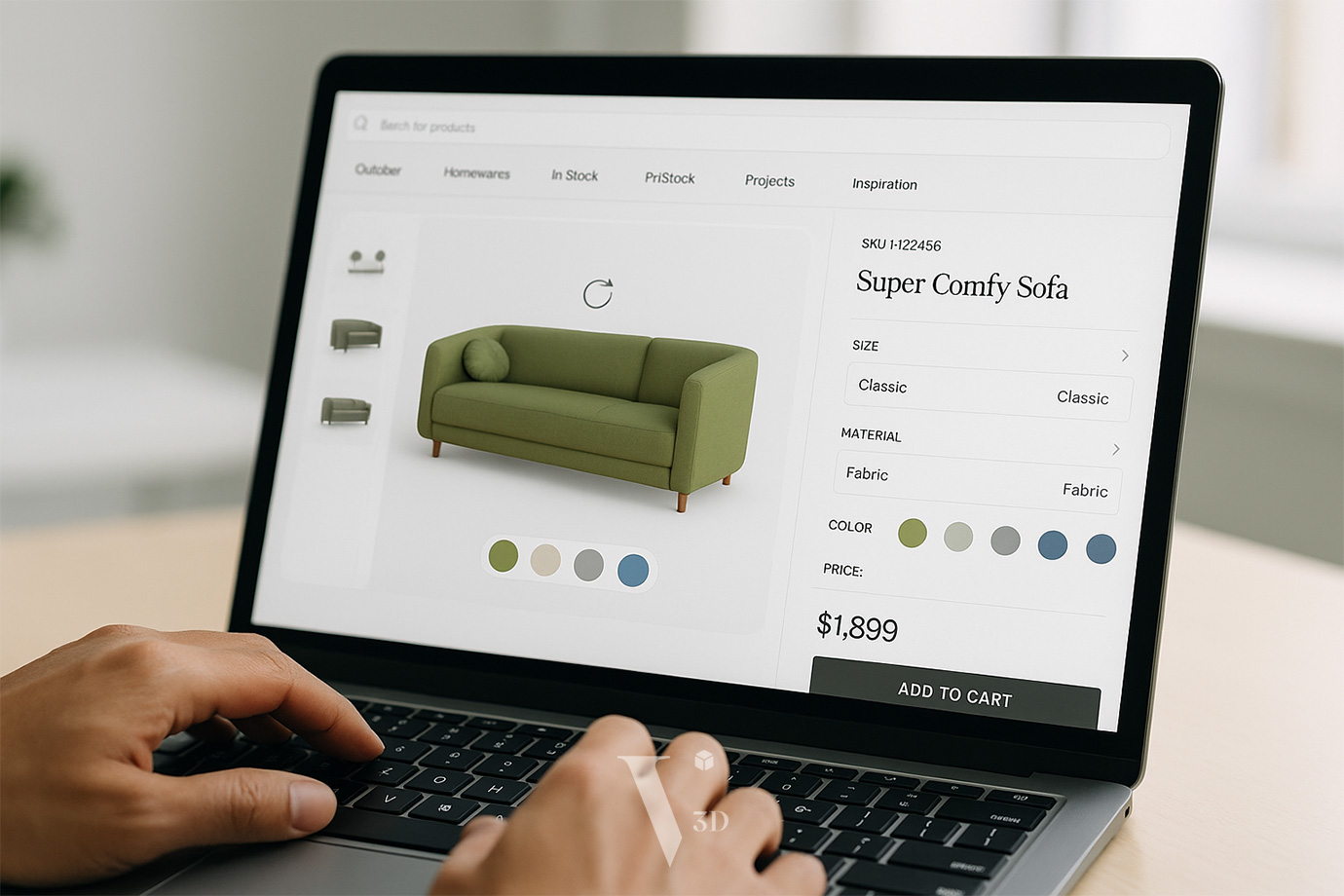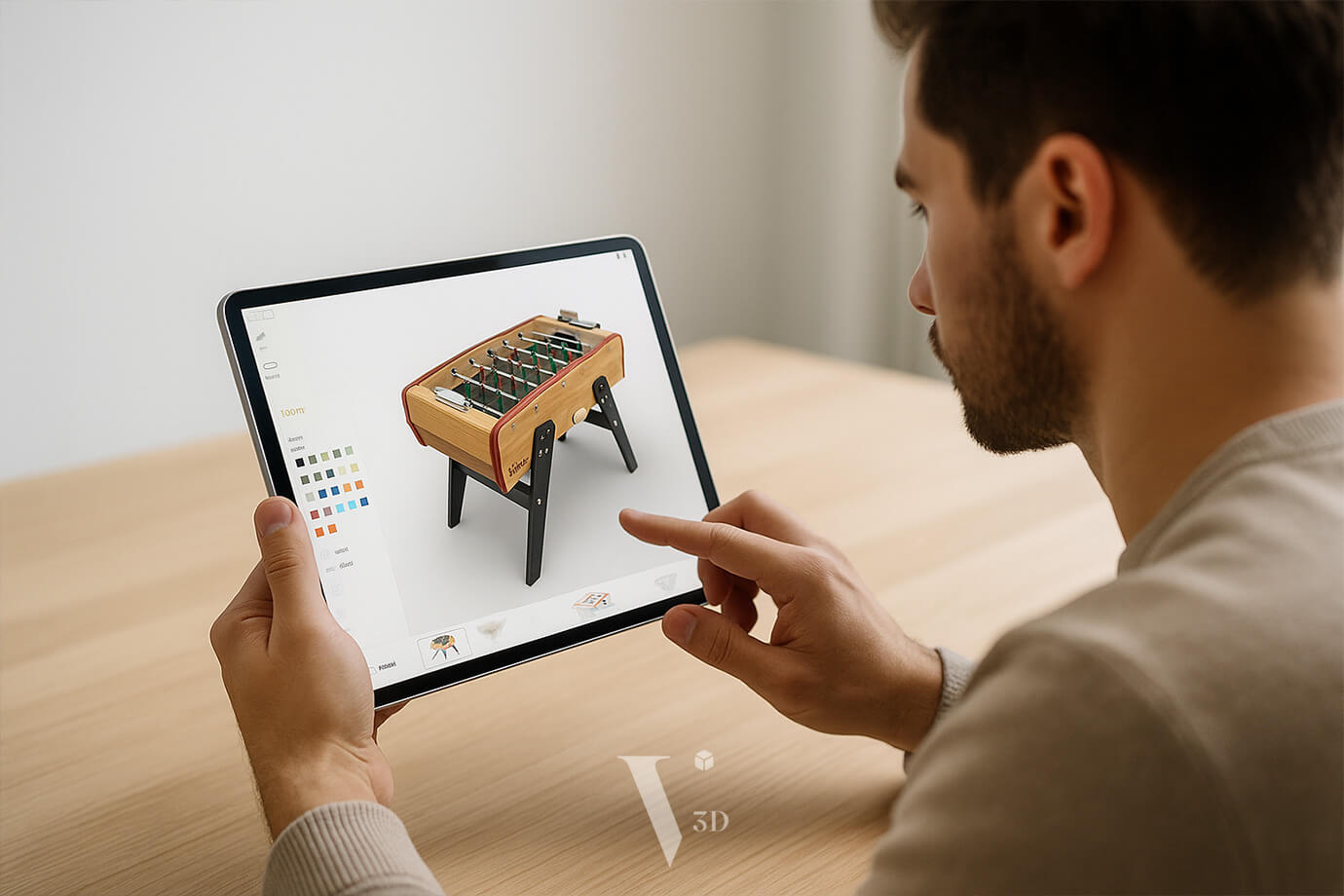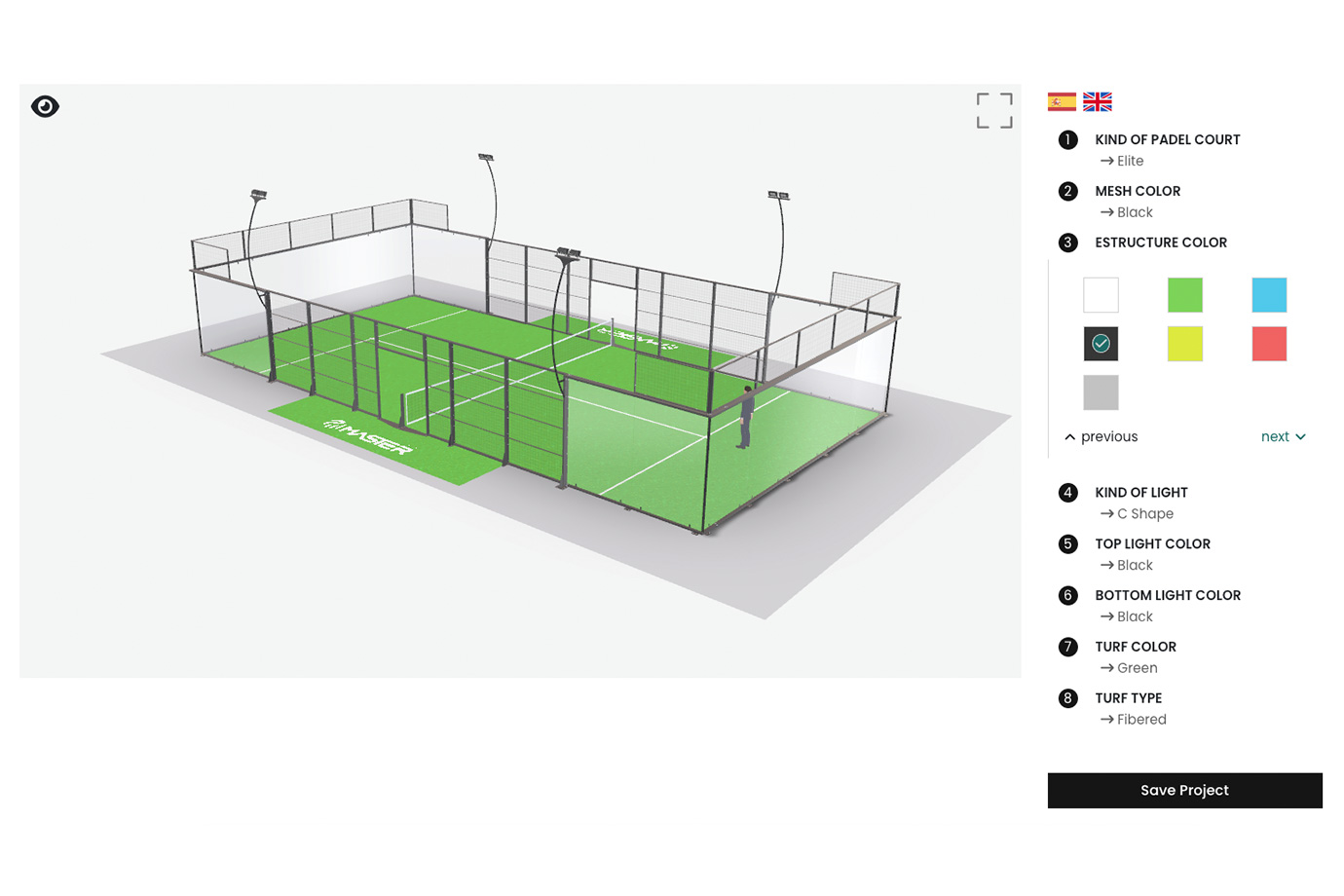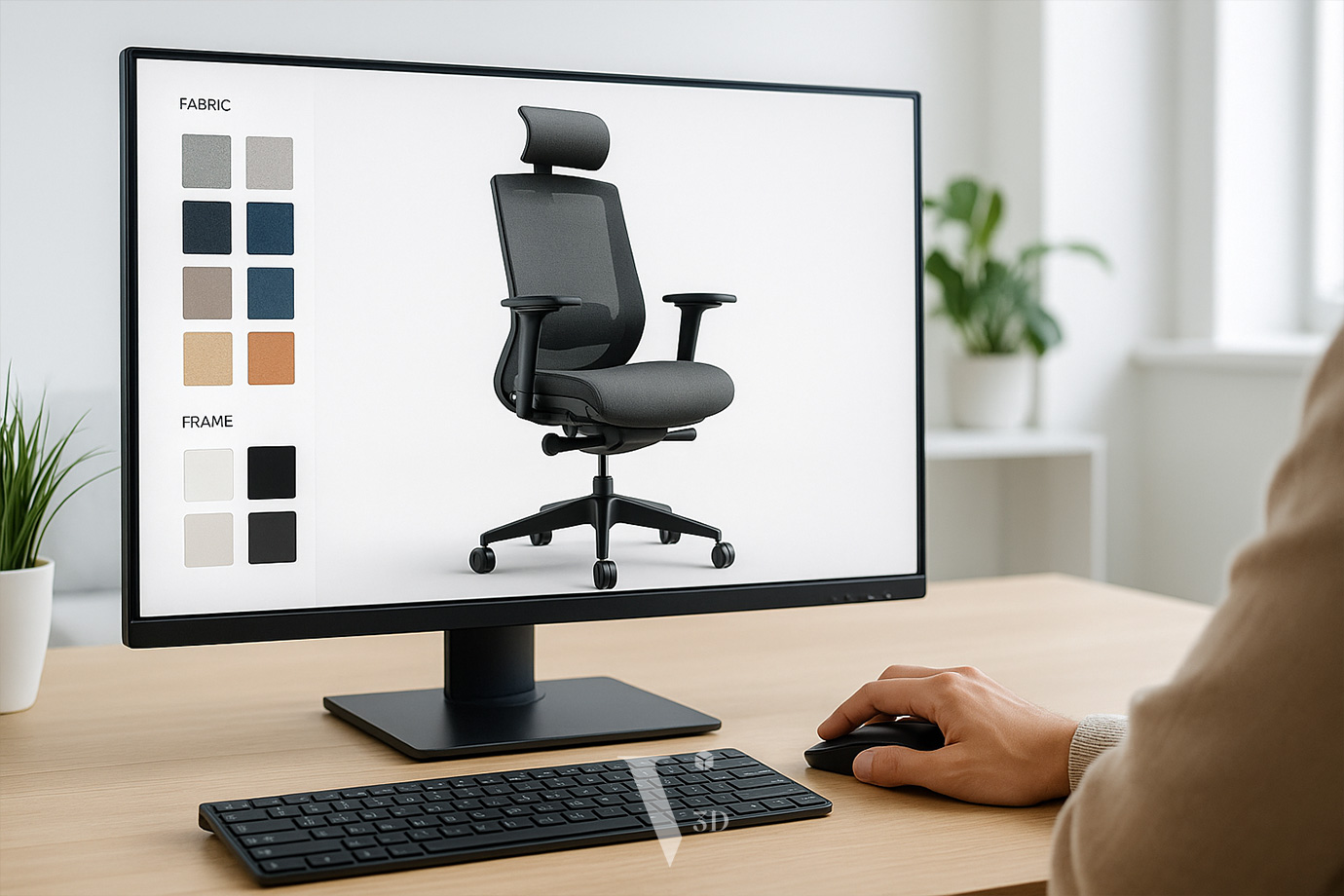
In today’s increasingly competitive market, creating interactive customer experiences is becoming a key differentiator in brand strategy. Especially for ergonomic brands — those that specialize in products designed to optimize user comfort — the value of 3D configurators is quickly being recognized as a way to enhance customer interaction and improve personalization in the shopping journey.
Understanding 3D Configurators
What Are 3D Configurators?
3D configurators are tools that allow users to customize and personalize products based on their preferences through an intuitive 3D interface. Instead of just viewing a static image, customers can rotate, flip, and change product components in real time. This not only gives them a more complete view of the product but also makes them feel involved in the design process.
Key Features of 3D Configurators
One of the main reasons ergonomic brands are turning to 3D configurators is the enhanced user experience. According to a study by Zoovu, most consumers highly value interaction and personalization when shopping. This leads to greater confidence when making purchase decisions. Moreover, the ability to “see and touch” the product digitally helps build trust — something 3D configurators deliver exceptionally well.
Meeting Market Demands
Customers Want Personalization
As demand for ergonomic products grows, customers are no longer looking for generic solutions — they want products that match their unique preferences and needs. Using 3D configurators allows them to tailor every detail, from size and color to materials and more. For instance, a customer might want an office chair that’s not only comfortable but also complements their workspace interior. With 3D configurators, this level of customization becomes effortless.
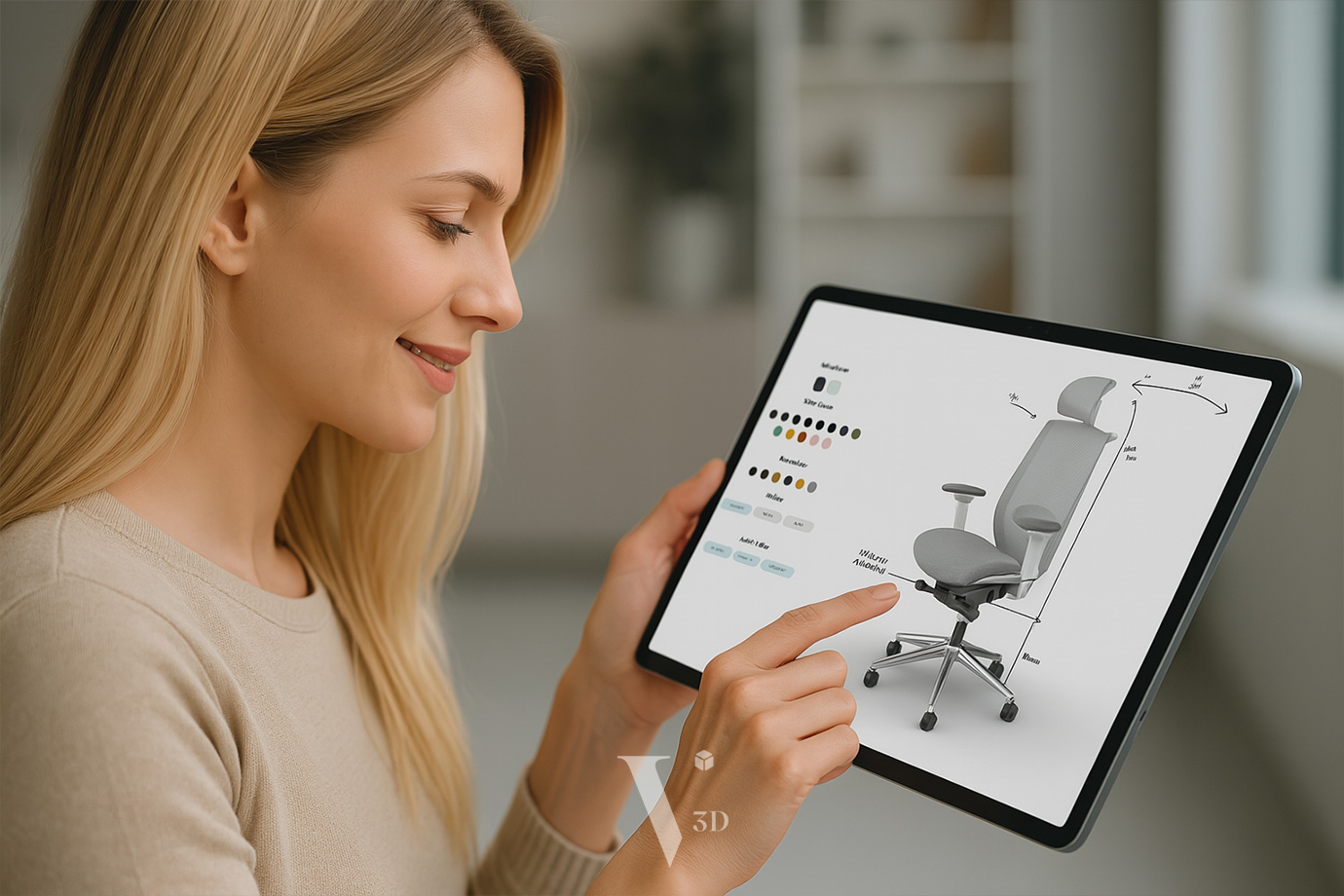
Optimizing the Design Process
Switching to 3D configurators doesn’t only benefit customers — it also improves internal efficiency for ergonomic brands. Brands can receive ongoing feedback from users and update product designs in real time. This helps reduce development time and costs, while increasing adaptability to changing market demands.
Innovation and Competitive Advantage
A Breakthrough Competitive Strategy
In today’s landscape, where differentiation can make or break a business, implementing technologies like 3D configurators is a game-changer. Brands like Herman Miller are already reaping the benefits by allowing customers to preview products via 3D and AR models before purchase. This boosts trust and builds a stronger emotional connection with the brand.
A Future-Forward Initiative
With more people working from home and increasing demand for ergonomic workspaces, brands that adopt 3D configurators stand to gain the most. For example, a remote worker can use a configurator to design an optimized workstation, directly influencing their health and productivity. This not only improves the customer experience but also strengthens the brand’s position in the industry.
In every aspect, this shift is not just about technology — it’s about how brands build deeper relationships with their customers. Thus, the move to 3D configurators is not just a smart business decision; it’s a future-proof strategy for the ergonomic industry.
Explore our completed project : Ergonomic chair with interactive configurator
At 3D IDEAS, we believe the future of product experience lies in personalization and interactive technology. Whether you’re an ergonomic furniture brand, a real estate developer, or a cultural institution, our tailored 3D configurator and interactive presentation solutions help you enhance customer engagement and gain a competitive edge in the market.
Ready to bring your product into the interactive 3D space?
Let’s create your next immersive customer experience together.
Contact us today for a tailored consultation.
Share this post!

Nguyen Huynh (Rainer) - CEO of VMT Solution
As the Co-Founder and CEO of VMT Solutions, I earned my Master’s degree in Technical and Vocational Education and Training (TVET) from Germany in 2007. With over a decade of experience in point cloud processing and BIM services, I’ve always been passionate about tackling complex challenges and developing innovative workflows that enhance accuracy and detail in point cloud to BIM conversions.

